MKO former members
“MEK played a prominent role in repressing the intifada in the southern Iraqi cities in 1991 as it sent forces from the organization to the cities of al-Amara and Diala, as the former regime did not rely on its soldiers more than relying on the MEK fighters in this particular respect,” Batoul Soltani said in a press conference she held in Baghdad . 
Ms. Batoul Soltani left the Mujahedin-e-Khalq Organization in 2006, while she was a member of the Leadership Council of the MKO. Ms. Soltani managed to release herself after two decades of being captive of the cult of Rajavi.
On whether she was read to stand before the Iraqi judiciary regarding her involvement in repressing the intifada, Soltani replied, “I am ready to stand before the Iraqi courts to give my testimony on this case.”
“MEK used to back militias inside Iraq by training them and have them infiltrate the present Iraqi institutions,” Soltani, a former member of the MEK leadership council, said, declining to name those “militias.”
The 1991 uprisings were a series of rebellions in southern and northern Iraq in the aftermath of the Gulf War.
The revolts in the Shia-dominated cities of Basra and al-Nasiriya broke out in March 1991, sparked by demoralized Iraqi army troops returning from Iraq’s defeat in the Gulf War.
Another uprising in the Kurdish areas of northern Iraq broke out shortly thereafter. Unlike the spontaneous rebellion in the south, the uprising in the north was organized by two rival Kurdish parties: Massoud Barazani’s Kurdistan Democratic Party (KDP) and Jalal Talabani’s Patriotic Union of Kurdistan (PUK).
Although they represented a serious threat to his regime, former Iraqi President Saddam Hussein was able to suppress the rebellions with massive force and maintain power, as the expected United States intervention never materialized.
The uprisings were eventually crushed by the Iraqi Republican Guard, which was followed by mass reprisals and intensified forced relocations. In a few weeks, tens of thousands of civilians were allegedly killed.
The prime defendant in this case is Ali Hassan al-Majid, alias Chemical Ali, who was condemned to death on charges of crimes against humanity in the al-Anfal case, in his capacity as former commander of the Southern Zone, based in Basra, and member of the dissolved Revolutionary Command Council.
Other defendants include Sultan Hashim, the former Iraqi defense minister; Hussein Rashid al-Tikriti, former assistant chief of staff; Saber Abdul-Aziz al-Dori, the former chief of military intelligence; Sabaawi Ibrahim al-Hassan, former President Saddam Hussein’s half brother; Abad Hamid Mahmud, Saddam’s personal secretary; Abdul Ghani Abdul Ghafour, a former Baath Party official; Saadi Taama Abbas, the former minister of defense; Iyad Fatieh al-Rawi, former chief of staff and a Republican Guard commander; Latif Mahal Hamoud, former Basra governor; Sufyan Maher al-Tikriti, also a former Republican Guard commander; Iyad Taha Shehab, a former intelligence chief and Walied Hamid Tawfiq al-Naseri.
Soltani said she has heard from MEK chief Massoud Rajavi after the fall of the former regime in 2003 that the handover of their weapons to the U.S. side was a “tactical plan,” adding “MEK boasts a very strong intelligence system”.
The defector said she has spent more than 20 years of her life inside Camp Ashraf before she managed to escape a couple of years ago. Soltani has come to Iraq in 1986 with her husband using a fake passport and remained inside the camp until she was able to run away after the 2003 fall of the Saddam Hussein regime.
PMOI is a militant Islamic Socialist organization that advocates the overthrow of Iran’s current government.Founded in 1965, the PMOI was originally devoted to armed struggle against the Shah of Iran, capitalism, and Western imperialism.The group officially renounced violence in 2001 and today it is the main organization in the National Council of Resistance of Iran (NCRI), an “umbrella coalition” parliament-in-exile that claims to be dedicated to a democratic, secular and coalition government in Iran.The group has had thousands of its members for many years in bases in Iraq, but “they were disarmed in the wake” of the 2003 US-led invasion and “are said to have adhered to a ceasefire.”The PMOI’s armed wing is, or was, called the National Liberation Army of Iran (NLA).
The Iranian government officially refers to the organization as the Monafeqin (literally, “Hypocrites“), maintaining that PMOI is not truly Islamic.The United States, European Union (EU), Canada, Iraq and Iran have designated the PMOI a terrorist organization.Although the European Court of Justice has overturned the EU designation in December 2006, the Council of the EU declared on January 30, 2007 that it would maintain the organization on the blacklist.
Camp Ashraf, which lies in the province of Diala, 57 km northeast of the Iraqi capital Baghdad, exists since the 1980s. The PMOI members in Iraq were collaborating with the former regime of Saddam during its war with Iran from 1980 to 1988.
Soltani called on the Iraqi government to “target all the leaders of the MEK,” expressing readiness to help the Iraqi government on this.
“There are about 3,000 MEK fighters whose hands are tied under the strong control of Massoud Rajavi and Maryam Rajavi. They do not have any media channels to express themselves and for more than 20 years they have been hearing nothing except the voices of those leaders,” noted Soltani.

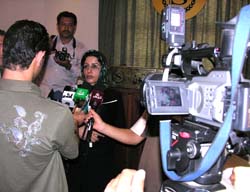
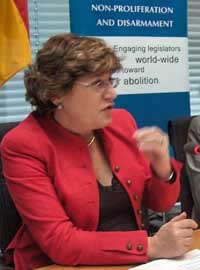
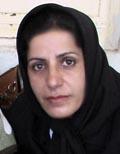 through different means. He could get some youth away from their homes. They were innocent young individuals whose natural right was to live a normal life, but MKO could deceive them to join the group. I remember that at the time each person needed 30 thousand Tomans (roughly 30 American Dollars) to flee from Iran. The organization recruited those who were out of job or those who had other problems and sent them out of the country through various ways. There were also individuals who were introduced to the organization. For instance my husband was introduced by a member who had already joined the group. Then the organization sent a guy to recruit him in Iran and sent him abroad. There were some smugglers who took the recruited ones passing the borders and the journey was very dangerous. But it didn’t matter to Rajavi. When the organization tricked my husband and me, we were supposed to join MKO’s courier. We got out of Iran on camels. We risked our lives so many times but finally we could survive. I remember a lot of young couples were killed in the way.
through different means. He could get some youth away from their homes. They were innocent young individuals whose natural right was to live a normal life, but MKO could deceive them to join the group. I remember that at the time each person needed 30 thousand Tomans (roughly 30 American Dollars) to flee from Iran. The organization recruited those who were out of job or those who had other problems and sent them out of the country through various ways. There were also individuals who were introduced to the organization. For instance my husband was introduced by a member who had already joined the group. Then the organization sent a guy to recruit him in Iran and sent him abroad. There were some smugglers who took the recruited ones passing the borders and the journey was very dangerous. But it didn’t matter to Rajavi. When the organization tricked my husband and me, we were supposed to join MKO’s courier. We got out of Iran on camels. We risked our lives so many times but finally we could survive. I remember a lot of young couples were killed in the way. 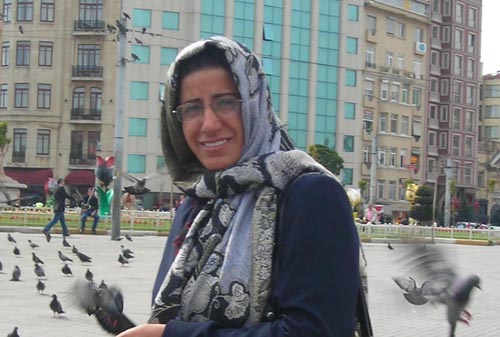
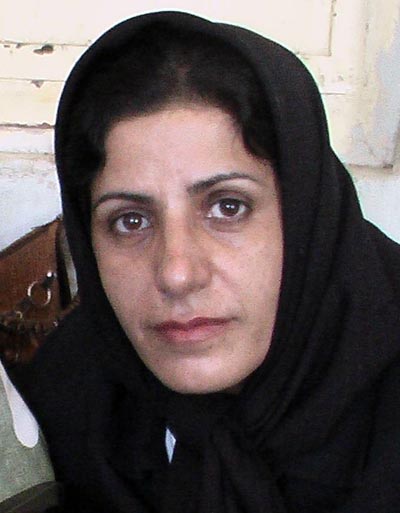
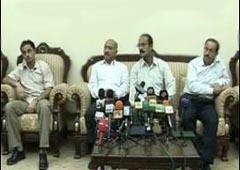
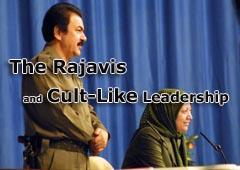 jargon).
jargon).